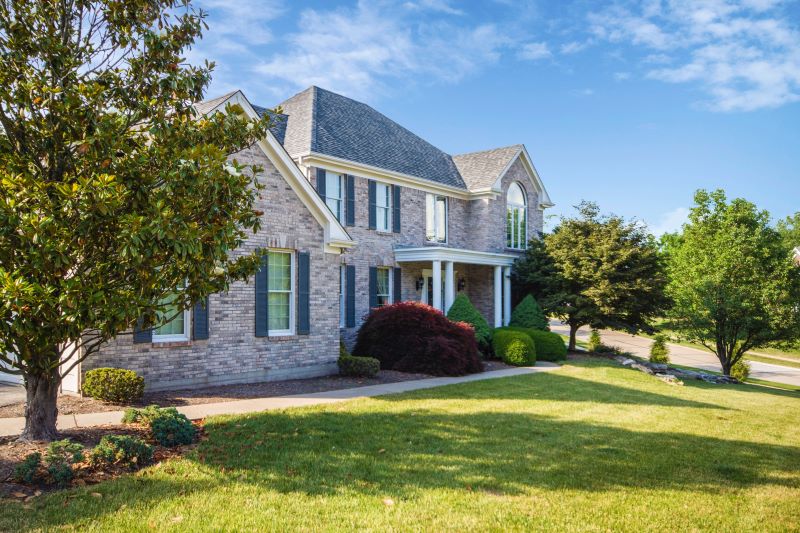Investing in real estate is one of the biggest decisions property owners will make. If you’re new to the investment game, you’re probably coming across a lot of words, phrases, and acronyms you’ve never seen before. Or, if you have seen them, you may not be 100% sure what they all mean. Familiarizing yourself with industry “jargon” is crucial to your investment journey as you need to have an in-depth understanding of every word thrown your way to make the best decision possible. Here, we’ve laid out several terms that will allow you to confidently begin investing in rental properties.
Appreciation
Put simply, appreciation is an increase in an asset’s value over time. These increases are affected by a number of factors including changes in supply vs. demand, interest rates, or inflation. Appreciation is important when it comes to analyzing whether to buy (or not buy) a specific property as it helps determine how your return will grow as the value of an investment property increases.
Capitalization Rate
Typically referred to as “cap rate”, this is used to determine your annual return on a property investment based upon the profit you expect the property to generate. This figure is a ratio between your net operating income and the price you paid for the property. For example, if you purchased a property for $200,000 and your expected net income for the year is $15,000, your cap rate would be 7.5% as you divide the expected net income by the purchase price. Keep in mind that cap rate does not take into consideration any loan costs; however, you want your cap rate to be greater than your interest rate on your loan. Does this mean you shouldn’t use this calculation? Not necessarily – it can still be a great tool for evaluating multiple properties when you’re considering which one to purchase.
property to generate. This figure is a ratio between your net operating income and the price you paid for the property. For example, if you purchased a property for $200,000 and your expected net income for the year is $15,000, your cap rate would be 7.5% as you divide the expected net income by the purchase price. Keep in mind that cap rate does not take into consideration any loan costs; however, you want your cap rate to be greater than your interest rate on your loan. Does this mean you shouldn’t use this calculation? Not necessarily – it can still be a great tool for evaluating multiple properties when you’re considering which one to purchase.
Cash Flow Before Tax
Cash flow is the pre-tax amount you end up with each month, after all, operating expenses pertaining to the property have been subtracted from gross operating income. You, of course, always aim for a positive cash flow as that means you’ve spent less money on the investment than you’ve earned. To achieve this, the rental payment needs to be higher than your monthly mortgage payment and this will create a steady stream of income for you that can be set aside for future maintenance needs or put towards another investment.
How do you calculate cash flow before tax? Simply subtract your operating expenses, net operating income and annual debt service (your monthly loan payment & interest) from your gross operating income.
Depreciation
Though depreciation may sound like a negative term, it is actually a great benefit for rental property owners as the property is assumed to depreciate over time but in fact, will likely appreciate in value. For a real estate investment, depreciation is a tax benefit that allows you to deduct certain expenses from your annual income, thereby reducing your taxable income. It is important to note, that your investment property must meet certain criteria in order for you to be able to take advantage of depreciation: These criteria include:
- The property is producing income
- The property has a useful life – this means that, over time, it will “wear out” or lose value from natural causes
- The property is expected to be in use for more than a year
Equity
Equity is determined by calculating the difference between the home’s current market value and the amount you owe on your mortgage. Equity tends to increase over time as the mortgage payment is decreasing while the property itself is appreciating in market value. Building equity is fantastic as it allows property owners to save for retirement or pay for unexpected life events. To put it plainly, you want your equity to be continually increasing.
Long-term Rental
This may sound like an easy one but, depending on what state your investment property is in, can have different definitions. In North Carolina, a long-term rental is considered any rental term that is over 3 months (90 days). Conversely, any rentals for less than that amount of time are considered short-term rentals. Investing in long-term rentals is oftentimes more lucrative as you’re having tenants sign longer leases (12+ months) which guarantees you income for longer periods of time.
Net Operating Income
Typically expressed as the acronym NOI, net operating income measures an investment property’s potential profitability. This figure can be determined by estimating revenue and subtracting expenses such as maintenance, repairs, property tax, etc. It is important to note that this calculation does not include mortgage payments.
Occupancy Rate
Occupancy rate is a ratio of occupied properties to total available properties. It is important to evaluate the occupancy rate of the area in which you’re investing and, of course, the higher the rate the better as it allows investors to estimate the amount of rent they’ll collect annually. In Wilmington, occupancy rates have remained steady at around 95% over the past several years. Occupancy rate can also be considered on a smaller scale for individual properties and be calculated by a ratio of days in a year to days property has been occupied.
PITI
Standing for “Principal Interest Taxes Insurance”, this is the payment on most residential mortgages. Your PITI can be determined by adding the mortgage payment itself, interest payment, property taxes, and homeowner’s insurance. Why does this matter? Calculating PITI gives investors a more accurate picture of what their monthly income will be on a rental property vs. considering only the mortgage and interest payments.
Remote Investments
A remote investment is simply a rental property investment made outside the area in which you live. Those making remote investments should purchase properties in areas that indicate a more favorable return on investment. With remote investing, you should look for properties in fast-growing areas, areas where rental rates are higher, or areas that have lower tax rates. When making remote investments, it is key to take advantage of real estate professionals in that area who can guide you in choosing a property as well as professional property managers who can care for your investment.
Rehab Properties
In the world of real estate investing, rehabilitation, or rehab properties, are properties that need work before becoming tenant-ready. These maintenance needs can range from small upgrades such as painting or new flooring to larger expenses like replacing the roof or installing a new HVAC unit. It is key for investors to determine what (if any) large, costly repairs will be needed prior to finalizing the purchase of the home.
Turnkey Properties
Turnkey properties are essentially properties that are rent-ready and don’t currently require any major repair. These properties are advantageous in that they allow investors to immediately begin placing tenants in the property and thus generate income. Though this may sound like the best choice, it is important to still do your homework in having the property inspected as well as considering how other factors such as location will ultimately impact your bottom line.
in that they allow investors to immediately begin placing tenants in the property and thus generate income. Though this may sound like the best choice, it is important to still do your homework in having the property inspected as well as considering how other factors such as location will ultimately impact your bottom line.
Though this list is by no means comprehensive, it’s a great start for first-time (or even veteran) investors to begin understanding the ins and outs of purchasing an investment property. And remember, it is always important to consult with an accountant or other tax professional before making final decisions on property investments or banking on tax advantages.
If you’re looking to become a rental property owner or have additional questions about making a sound investment choice, please reach out to our business development director via our website or at 910.239.1338. Our experts can provide a no-obligation rental analysis, guide you on what areas of town are most popular and lucrative for property investments, and put you in touch with a local sales agent who can assist you with the buying process.



